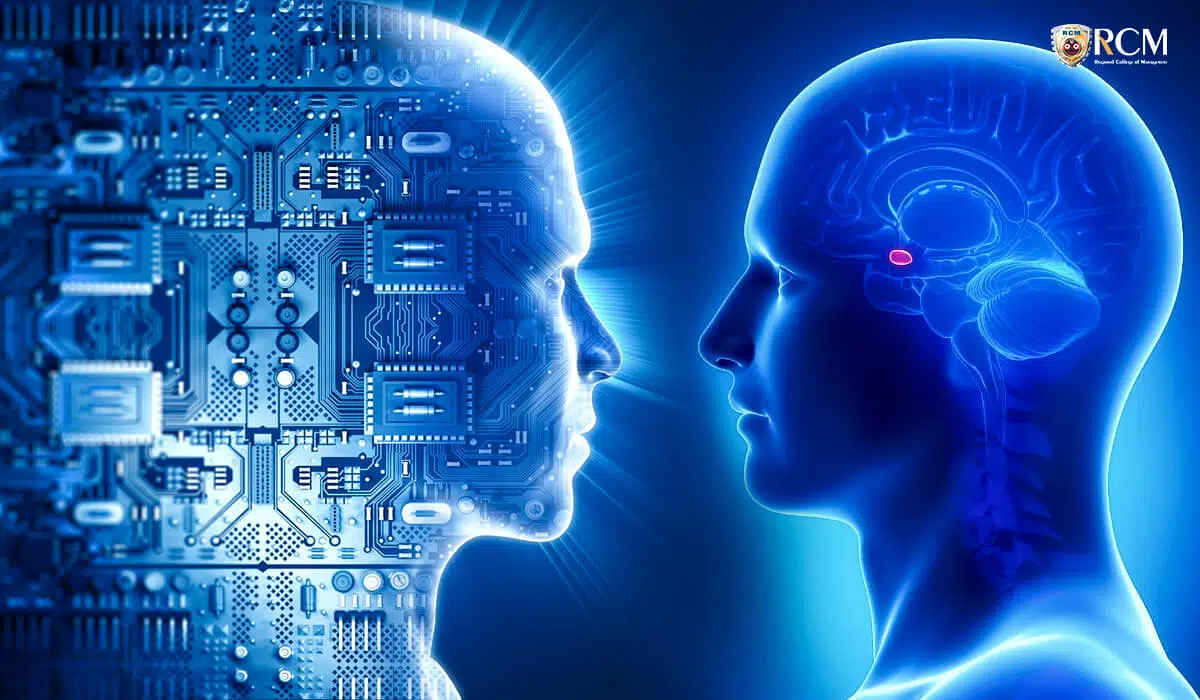Do you believe you make all your decisions on your own? Not even as I am writing this blog. Cognitive Artificial Intelligence may shape our judgments. We make several decisions daily, such as where to go, what to eat, where to shop, what to read, and so on. This helps humans in all aspects of their daily lives. You might listen to someone or browse for reviews to help you decide. To make a choice. But what if the information is biased?
Artificial Intelligence (AI) is used to help people make decisions. It collects and analyses huge amounts of data and provides us with conclusions. Cognitive Artificial Intelligence not only allows us to direct, purchase, and so on. But it also allows us to make more critical decisions about our current societal benefits, such as medical treatment, verdicts, health insurance, and so on.
Can Artificial Intelligence Replace Our Friends And Teachers?
We are increasingly communicating and interacting with AI systems, their related applications, and even the robots with whom we chat. They chat with us, post comments, and react to humans. It could be helpful and effectively assist people in many domains, like education, audio guidance, etc. But what will be the impact of this on human-computer interaction? What are the differences between communicating with real people and conversing with Cognitive Artificial Intelligence?
Today, we are running after an AI technology that has the intellectual capacity of the human intelligence.
For a very long time, human beings have been aiming to create a machine with complicated abilities like human intelligence. When Cognitive Artificial Intelligence initially emerged, people thought that creating a model that imitated humans would be simple. However, it took scientists more than five decades to fully execute the principle.
Why Is It Difficult To Create A Machine Equal To The Human Brain?
Everything is possible in today’s world, yet no large machine can compete with human intelligence. We humans invented these technologies, and something called “Cognitive Artificial Intelligence” exists.
To be fair, scientists are still trying to figure out how human intelligence works. Even if our everyday tasks and activities are only routines, the brain possesses cognitive science abilities that allow our bodies to operate with them. While researchers have explored parts of the brain’s reaches, others remain a mystery. The complexity of human intelligence encouraged researchers to develop a machine brain.
It is difficult to recreate cognitive computing systems in a deep neural network, and it is the ultimate objective of Cognitive Artificial Intelligence. However, neural networks are emerging as a source for simulating human-computer interaction. Other cognitive science abilities are important as brain networks grow. Despite the challenges, many AI researchers are working on developing algorithms inspired by certain cognitive science functions in human intelligence, which have shown very promising outcomes.
Human Brain and Machine Capability:-
But why is it so difficult for scientists to simulate human intelligence with machine capabilities? It is because people did not get to where they are now quickly. They have been through a lot. Human intelligence has evolved in terms of adapting to survival instincts, generating curious minds, and managing natural demands.
Everything was a steady climb, from when the ancients hunted animals for food to today, when humans learned that lightweight wings might make a helicopter fly on Mars. The fact that human intelligence continues to surpass our physical strength means that the integration of computer science, algorithms, machine learning, and cognitive computing systems is speeding up our scientific development.
Even though human intelligence continues to surpass our physical ability, the combination of computer science, algorithms, machine learning, and cognitive computing systems is going to speed up our scientific progress.
Machines, on the other hand, are not affected in the same way. Rather than training them to learn, we coded them using algorithms. Despite the fear of a future world being put to one side, many are interested in seeing what a computer with all cognitive artificial abilities will look like.
When the notion of a brain-computer interface was first proposed, this interest increased even more. Elon Musk’s Neuralink and Bryan Johnson’s Kernel are adding fuel to the fire by enhancing machine capabilities through human-computer interaction.
Let Us Now Look At Some Of The Human Cognitive Qualities That Are Being Used To Inspire Artificial Intelligence Brains:
Awareness: Have you ever noticed that machines can’t focus on one thing and are easily distracted by other things when they hear a noise or see something unusual? But we, as humans, do it all the time. Additionally, we can do both. We can focus and dedicate our attention to a certain issue for a long period while forgetting about what is going on around us, and we can also shift our attention as needed. The attention mechanism in the human intelligence has inspired researchers. Cognitive computing works in deep learning methods to power machine learning models like convolutional neural networks (CNN) or deep generative models.
Thinking: Humans engage in everyday activities such as thinking. We do not put forth a lot of effort to find answers. The reason for this is that humans have memory, cognition, voice, object recognition skills, and so on, all of which are active at the same time. This may mimic human intelligence in Cognitive Artificial Intelligence models by providing conceptual models of the human intelligence for multidisciplinary research into its functions, such as vision, action, sensory control, and learning.
Common sense: Machines face difficulty recognizing certain objects. A model must be fed equivalent data to detect an item or speech. The model will only be able to spot a monkey accurately after seeing hundreds of images of it. The Cognitive Artificial Intelligence brain’s process will now be based on copying human intelligence data. It helps machines sense an item in a variety of situations and lighting environments.
The Future of Cognitive Artificial Intelligence
The future of Cognitive Artificial Intelligence is an ongoing debate. While some believe it will revolutionize our way of life and help us make informed decisions, others fear that ai systems may surpass human capabilities. The role of cognitive computing systems in decision-making will continue to grow, transforming how human intelligence and ai systems interact. As cognitive computing works evolve, we will see more mimicking human behaviors in AI models. The ultimate goal is to ensure that AI aids human decision rather than replacing it.
In conclusion, while Cognitive Artificial Intelligence is advancing rapidly, it still has a long way to go before it can fully replicate human intelligence. The intersection of machine learning, computer science, and cognitive computing works is where the future of AI lies, shaping the way we interact with technology and make informed decisions in our daily lives.



















